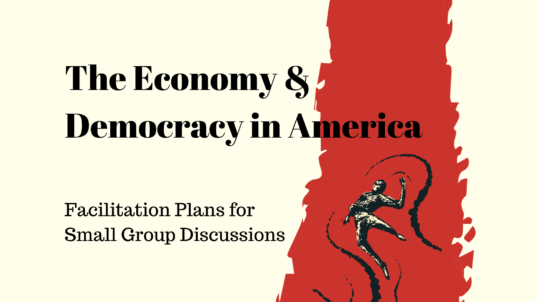A Sustained Discussion Project (2024-2025)
Led by SDP Visiting Fellow, Laura May
Overview
The rise of digital nomads and the sharing economy create challenges and opportunities for city communities worldwide. How do they change economies, housing, governance, and community cohesion? This project explores clashes and convergence between transient, online, and local populations, and the broader implications of technology-driven mobility.
Exploratory Questions
In this project, we will explore a range of questions:
- How might digital nomadism and the sharing economy transform our sense of who belongs in a community? Who belongs, and how?
- How might an influx of transient populations impact long-term residents in cities like Barcelona? What tensions and opportunities arise between locals and new arrivals?
- What policies might help cities balance the benefits of a mobile, global workforce with the needs of their permanent residents? How could cities redefine community engagement in response to shifting dynamics?
- What ethical considerations arise when cities host populations with different levels of wealth, privilege, or mobility?
- What legal, social safety net, and governance structures will be required to address the needs of both transient and permanent populations?
- How might local cultural traditions and practices be honored and reshaped?
- How might emotional connections to a place change when part of its population is fluid or transient?
- In what ways could cities support the spiritual needs of both transient and permanent populations (or vice versa)?
- What new kinds of family or communal structures could emerge in cities with more transient populations?
This project will also ask bold questions that help us to imagine different futures.
- What would a world look like where housing is no longer tied to geography, and residents move fluidly between cities as they work remotely?
- What kind of urban governance structures might emerge to address the needs of increasingly mobile populations? Could we see cities governed by networks that span across borders?
- Could future cities redefine what it means to be a resident or citizen, potentially creating new forms of identity and membership?
- What possibilities exist for a future where technology helps create seamless integration between transient and permanent populations? Could augmented reality or virtual platforms foster deeper connections between people, regardless of how long they stay in a city?
- How might future cities manage resources like housing and infrastructure to support increasingly transient populations sustainably?
- What could a future look like where economic privilege is less of a dividing factor in who benefits from global mobility?
- What future policies or economic models could create equitable systems whereby all residents, whether transient or permanent, can thrive in urban environments?
Summary
The discussions facilitated by this project aim to dig into these sticky questions. By exploring local impacts of digital nomadism and the sharing economy in the international city of Barcelona, we seek lessons that can inform the future of urban governance and community cohesion across the globe. It explores whether cities can balance the benefits of a mobile, global workforce with the needs of their permanent residents—and how, ultimately, international cities can maintain their identity and social cohesion while adapting to the realities of a technologically-driven world.
Get Involved
To learn more about this project, please contact Laura May via [email protected].
¡Únete a la Discusión Sostenida!
Are you in Barcelona or nearby, a speaker of at least intermediate Spanish, and interested in taking part in the sustained discussion? Then please fill in the below form.



